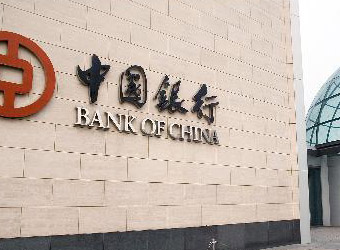China’s benchmark money-market rate tumbled the most since February 2011 after the central bank injected funds via open-market operations for the first time in three weeks, helping alleviate a cash crunch.
The seven-day repurchase rate, a gauge of funding availability in the banking system, tumbled 344 basis points, or 3.44 percentage points, to 5.4 percent, according to a daily fixing from the National Interbank Funding Center. It more than doubled to 8.84 percent in the last five days. The Shanghai Composite Index (SHCOMP) of shares gained 0.2 percent today, after climbing 0.2 percent from a four-month low yesterday.
The People’s Bank of China auctioned 29 billion yuan ($4.8 billion) of seven-day reverse-repurchase agreements at a yield of 4.1 percent today, after 300 billion yuan of targeted cash injections last week failed to hold borrowing costs down. Rising interest rates in the world’s second-largest economy pose a risk to growth, which economists predict will be the slowest in 14 years in 2013, and heighten the risk of defaults.
“The central bank is under pressure so it conducted the operations today, which was unexpected by us,” said Xu Hanfei, an analyst at Guotai Junan Securities Co. in Shanghai. “The tight cash situation is expected to ease toward year-end. If the seven-day repo stays below 6 percent, the PBOC can hold off from offering reverse repos in Thursday’s auction window.”
Citic Securities Co. and Guotai Junan, two of China’s three biggest securities firms by assets, predicted the central bank would refrain from using open-market operations to inject funds this week. Haitong Securities Co., which ranks second, forecast funds would be made available to stop interest rates climbing too high. The last such cash injection was on Dec. 3, when the monetary authority added 18 billion yuan.
‘Only Option’
“The PBOC won’t change its neutral-to-tight monetary policy, but saving the market looks to be the only option now,” Wei Fengchun, head of macro strategy at Shenzhen-based Bosera Asset Management Co., wrote in a note today. The relatively tight stance of the PBOC along with increased cash demand at year-end, delays to the transfer of fiscal deposits and the scaling back of U.S. monetary stimulus all contributed to the recent spike in rates, Wei said.
China Coal Energy Co. canceled a 1 billion yuan sale of seven-year bonds that was scheduled for today due to market turbulence, according to a statement posted on the website of Shanghai Clearing House.
The overnight repo rate dropped 24 basis points to 4.20 percent, while the 14-day declined 354 basis points to 5.96 percent, daily fixings show. The yield on August 2023 government debt was unchanged at 4.60 percent, according to the Interbank Funding Center. The 10-year yield reached 4.72 percent on Nov. 20, the highest in ChinaBond data going back to 2007.
Remain Elevated
“After the July liquidity squeeze and the current tightness, market participants will be more cautious, and hence money-market rates could remain elevated until the Chinese New Year break at the end of January,” saidFrances Cheung, Hong Kong-based head of Asian rates at Credit Agricole CIB. The PBOC is likely to conduct reverse repos again on Thursday as today’s amount wasn’t big and the tenor doesn’t cover the year-end, she said.
The one-year interest-rate swap, the fixed payment needed to receive the floating seven-day repo rate, fell 12 basis points to 4.96 percent as of 4:30 p.m. in Shanghai. It touched a record 5.13 percent yesterday, the highest in Bloomberg data going back to 2006.
“Higher rates should add downside risk on the Chinese economy in 2014,” Citigroup Inc. economists led by Minggao Shen wrote in a note today. Gross domestic product is forecast to increase 7.6 percent in 2013 and 7.5 percent next year, based on the median estimates in Bloomberg surveys of economists.
Source: Bloomberg



